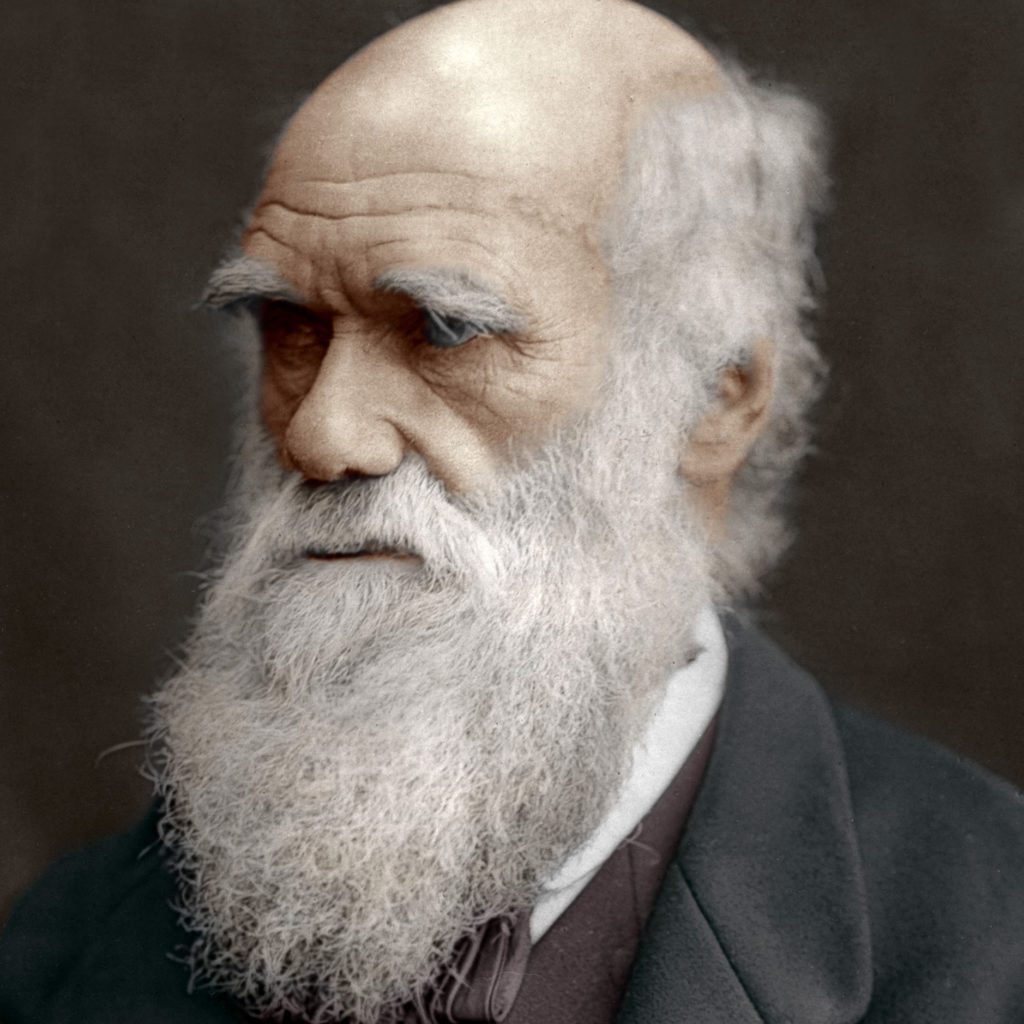In my paper, Natural reward drives the advancement of life, I begin by reviewing a contradiction in Darwin’s theory of evolution, and I move on to explaining the importance of Darwin’s core metaphors for his reasoning. To the modern evolutionist, this might seem like I am setting up a straw man. After all, modern evolutionary theory is supposedly based on so-called “fundamental theorems of evolution.” If such fundamental theorems exists, then shouldn’t I start by referring to them, instead of Darwin’s antiquated metaphors? Am I intentionally misrepresenting modern evolutionary theory, merely to refute it?
The answer to both questions is “no.” The modern theory of evolution is still based upon Darwin’s metaphors. To see this, take the field of population genetics. The field has succeeded greatly because of its focus on genotype and allele frequency change within species. It does not apply the principle of natural selection to species, clades, or other long-preserved units (e.g., Templeton 2006). It also long ago abandoned a search for so-called fundamental theorems of adaptation, in favor of approaches that reconstruct actual evolutionary histories (e.g., Grodwohl 2016; Charlesworth and Charlesworth 2017).

Darwin provided the metaphors that frame modern evolutionary theory
The success of population genetics is not due to general theorems of evolution that supposedly provide a conceptual foundation for the field. If we were to refer to Fisher’s fundamental theorem or the Price equation (e.g., Queller 2017), we might apply natural selection to any entity that exhibits qualities of reproduction or survival (e.g., Okasha 2006). Species seem to reproduce by speciation, and clades seem to differentially survive. Why not apply selection to those levels? Why not, moreover, search for a general theorem of adaptation, instead of investigating actual evolutionary histories?
Fundamental theorems of evolution do not answer these questions. If we go back to Darwin, however, we can discover the principles that justify a focus on within-species change. Reasoning from the struggle for existence, Darwin argued that most selection leading to competitive displacement occurs between types within species, vying for the same limited resources. It also followed that most evolution by natural selection is gradual, and that complex traits are built through stepwise series of historical events.
The way to extend evolutionary theory is thus to begin with Darwin’s metaphors, understand them, and extend them further. The theory of natural reward starts with a theoretical primitive, Darwin’s struggle-for-existence metaphor. It extends Darwin’s theory to include the struggle for supremacy, which happens under competition to exploit untapped resources. Within this greater struggle, competition occurs as a race to innovate. Those that are the first to exploit untapped resources are naturally rewarded with an incumbent advantage. Natural reward, then, is a separate non-random force of evolution, which operates at different levels and has different effects than natural selection.
Therefore, by starting with Darwin, I did not erect a straw man. Instead, I resurrected a real man, who provided the foundation for biology. By identifying the foundational importance of Darwin’s struggle-for-existence metaphor, I was able to extend Darwin’s theory to include the struggle for supremacy and natural reward. The theory of natural reward has the potential to explain overall progress and advancement, because it identifies a force of evolution that leads to expansion and increased innovativeness.
Charlesworth, B., & Charlesworth, D. (2017). Population genetics from 1966 to 2016. Heredity, 118(1), 2-9.
Gilbert, O. M. (2020). Natural reward drives the advancement of life. Rethinking Ecology, 5, 1.
Grodwohl, J. B. (2017). “The theory was beautiful indeed”: Rise, fall and circulation of maximizing methods in population genetics (1930–1980). Journal of the History of Biology, 50(3), 571-608.
Okasha, S. (2006). Evolution and the levels of selection. Oxford University Press.
Queller, D. C. (2017). Fundamental theorems of evolution. The American Naturalist, 189(4), 345-353.
Templeton, A. R. (2006). Population genetics and microevolutionary theory. John Wiley & Sons.